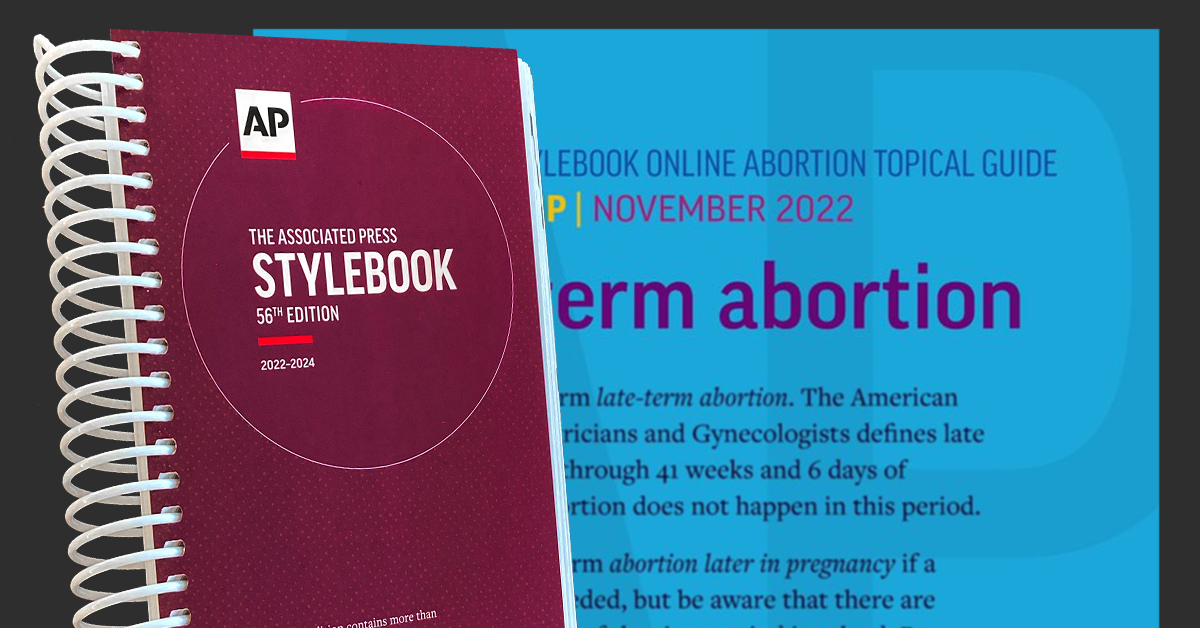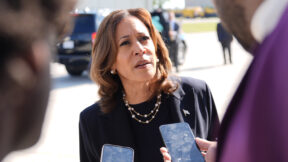
The Associated Press purports to have made a discovery: No late-term abortions are performed in the United States.
According to the AP Stylebook, “late-term” is defined by the American College of Obstetricians and Gynecologists (ACOG) as “41 weeks through 41 weeks and 6 days of gestation, and abortion does not happen in this period.”
But this definition is neither a legal term nor the commonly-accepted view, and the AP is attempting to disguise a political argument as a dictionary term.
Colloquially, a “late-term abortion” has long been understood to mean an abortion performed after either 20 weeks (a pregnancy’s halfway point) or 24 weeks (the start of the third trimester). The vast majority of abortions are performed prior to both milestones, when an unborn child is unlikely to be able to survive on its own outside of the womb. But pro-choice advocates — including Planned Parenthood, the largest abortion provider in the country — have persistently lobbied against the use of the term, which they view as politically disadvantageous.
A Harvard-Harris survey from this June shows that a large majority of Americans favor restrictions on abortions after 15 weeks gestation, and that 49% would be open to restrictions after six weeks gestation, with exceptions included for when a pregnancy is the result of rape or incest, as well as when the mother’s health is jeopardized by the pregnancy.
Despite what the AP and ACOG say, Americans view abortions performed on fetuses after 20 weeks — at which point they can hear, take naps, and move their eyes — as late. People are not prone, upon hearing about a “late-term abortion,” to thinking the term refers to a procedure occurring beyond the typical length of a pregnancy.
It’s important to recognize that the effort to police terminology is explicitly political. ACOG is not a neutral body seeking to provide accurate information for Americans of all persuasions on the abortion issue, it’s an avowed supporter of abortion at every stage of pregnancy. Here’s the organization’s official position, as stated on its website:
Abortion is an essential component of comprehensive, evidence-based health care. As the leading medical organization dedicated to the health of individuals in need of gynecologic and obstetric care, the American College of Obstetricians and Gynecologists (ACOG) supports the availability of high-quality reproductive health services for all people and is committed to protecting and increasing access to abortion.
ACOG strongly opposes any effort that impedes access to abortion care and interferes in the relationship between a person and their healthcare professional.
It opposes any effort to restrict abortions, with no qualifications. That position is wildly out of step with the average American’s. Surely the AP can see the problem with all but handing descriptive style decisions on an issue of controversy over to a politically motivated organization with a radical perspective on the issue.
And make no mistake, that’s exactly what the AP has done. On the advice of ACOG, the AP Stylebook also urges media outlets to refrain from referring to “fetal heartbeat” bills, to ignore the growing body of scientific evidence that fetuses can feel pain prior to 24 weeks gestation, and to dismiss the existence of medication that can reverse the effects of a pill-induced abortion attempt. All of these are political assertions, rather than definitive medical pronouncements.
People of good faith can disagree on each of these constituent issues. But a consensus should be reached through good-faith debate on them, rather than top-down pronouncements from overtly political actors.
By putting its thumb on the scale and limiting the language that can be used, the AP isn’t striving to be more accurate, or better inform news consumers, it’s obscuring the very real issues those consumers should be grappling with.
This is an opinion piece. The views expressed in this article are those of just the author.






